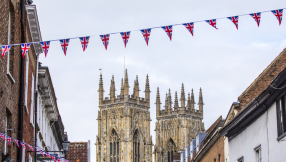Orthodox Anglicans committed to unity
The FCA grew up out of the 2008 GAFCON conference of orthodox Anglicans and their strong opposition to the liberalisation of Anglicanism in parts of the Communion, particularly North America.
In a closing statement of commitment on Friday, FCA leaders said their two goals were to proclaim and defend the Gospel throughout the world, and to strengthen the church worldwide by “supporting and authenticating faithful Anglicans who have been disenfranchised from their spiritual homes”.
“We heard numerous accounts from Anglican leaders around the world who have been harassed by their own bishops and fellow clergy for their Gospel witness, yet have been grateful for the stance of the FCA,” the statement said.
“We note that The Episcopal Church USA and the Anglican Church of Canada are proceeding post-haste to approve same-sex blessing rites with total disregard for the conscience of their own members, for the moratoria mandated by the official Instruments of the Anglican Communion, and for the broken state of communion where more than half the world’s Anglicans are represented by the FCA.”
At the start of the closed-door conference, the Primate of Kenya the Most Rev Eliud Wabukala called for an elected chair to the Primates’ Meeting, which has until now been chaired by the Archbishop of Canterbury.
He said that an elected chairman “means he is accepted by all of us”.
In an address, the Archbishop said revisionist interpretations of Scripture had presented Anglican identity with “unprecedented challenges”.
“If we are to understand the implications of this crisis for the recovery and renewal of Anglican identity, we must first be clear on what sort of crisis it is,” he said.
“We cannot treat this as simply an institutional crisis. The breakdown of the existing governance structures of the Anglican Communion is a symptom of a deeper problem.
“It is now generally recognised that the instruments of unity – the Primates Meeting, the Anglican Consultative Council, the Lambeth Conference – no longer command general confidence.”
Archbishop Wabukala said the rejection of the proposed covenant by the Church of England and other parts of the Communion showed it was “obvious that institutional remedies for the crisis have failed and that the problems we face are far too deep seated to be dealt with by merely managerial and organisational strategies”.
However, the Archbishop stressed to reporters on Friday that the FCA was not seeking a breakaway or takeover of the Anglican Communion from within.
“We are a gift to this Communion, a spiritual gift to strengthen the communion that we have,” he said.
The former Bishop of Rochester, the Rt Rev Michael Nazir-Ali, agreed in an address to the conference that the instruments of unity had “failed dramatically” and that the FCA was called to model an alternative way for the churches of the Anglican Communion to gather and relate to one another in carrying forward God’s purposes.
During the week, a network of Anglican lawyers was set up to assist the FCA and its members in legal matters.
FCA general secretary and Archbishop of Sydney, Dr Peter Jensen, explained: “What’s happened in my part of the world is that as society has become more and more secular the position of church and state has become far more fragile and we really do need to alert Christians in the legal profession to issues to do with church and state, where they need to be fully engaged in defending the interests of the Gospel.
“This fellowship is not intended as a sinister movement for lawyers to join but is intended for mutual help across the Communion because the experience we are having in Australia is similar to the experience here and elsewhere.
“Also there are many dioceses that are quite isolated who may and will feel the need to communicate with other lawyers around the Communion with similar problems.”
He stressed that the statement was not a communiqué but a “commitment for the people at the conference and the people they represent”.
“Delegates have told me, ‘We thought we were alone but we are not’,” the Archbishop continued.
The FCA refused to be drawn on who it would like to see replace Dr Rowan Williams when he steps down as Archbishop of Canterbury at the end of the year.
Archbishop Wabukala said: “We do not have any names in mind. We pray for God’s will to be done and for a godly man to be chosen.”
A second GAFCON conference is to be held in May 2013, although the venue has yet to be confirmed.













